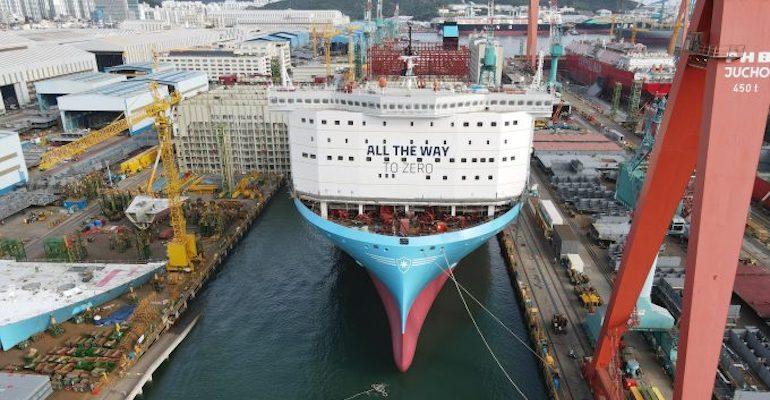The classification society’s latest tally shows a total of 298 projects, taking the alternative fuels total to 1,281 vessels.
DNV logged 138 projects for methanol, including retrofits, compared with 130 for LNG, all of which were for new ships. The almost four-fold increase in methanol-fuelled ships from 35 in the previous year indicated that methanol had gone ‘mainstream’, the classification society said. Container ships represented the lion’s share of new methanol contracts, 106, followed by 13 for bulk carriers and ten for pure car and truck carriers.
The 130-ship LNG tally in 2023 was down sharply on the 2022 total of 222. However, last year’s deals have taken the total of LNG-fuelled ships, excluding LNG carriers, through the 1,000-ship threshold, according to DNV. Container ship owners ordered 48 LNG-fuelled vessels, operators of car carriers 40, and tanker owners 30.
The AFI platform also recorded the first contracts for ships designed to run on ammonia - 11 were ordered. But hydrogen proved less popular compared with 2022 – down from 18 to five.
Commenting on the figures, DNV Maritime CEO, Knut Ørbeck-Nilssen, said: “As we navigate towards a greener maritime future, the growing demand for alternative-fuelled vessels speaks volumes. These orders send pivotal signals to fuel providers and other important partners on shipping’s decarbonisation journey. While it is clear that the maritime fuel technology transition is already underway, we now need to ensure the fuels powering these engines become available.
“It is however crucial to emphasise that focusing solely on fuels may divert our focus from achieving significant impact in this decade,” he continued. “What is required are concrete measures that actively lower emissions. Energy efficiency initiatives can yield decarbonisation outcomes both now and leading up to 2030.”
Copyright © 2024. All rights reserved. Seatrade, a trading name of Informa Markets (UK) Limited.
Add Seatrade Maritime News to your Google News feed.  |

